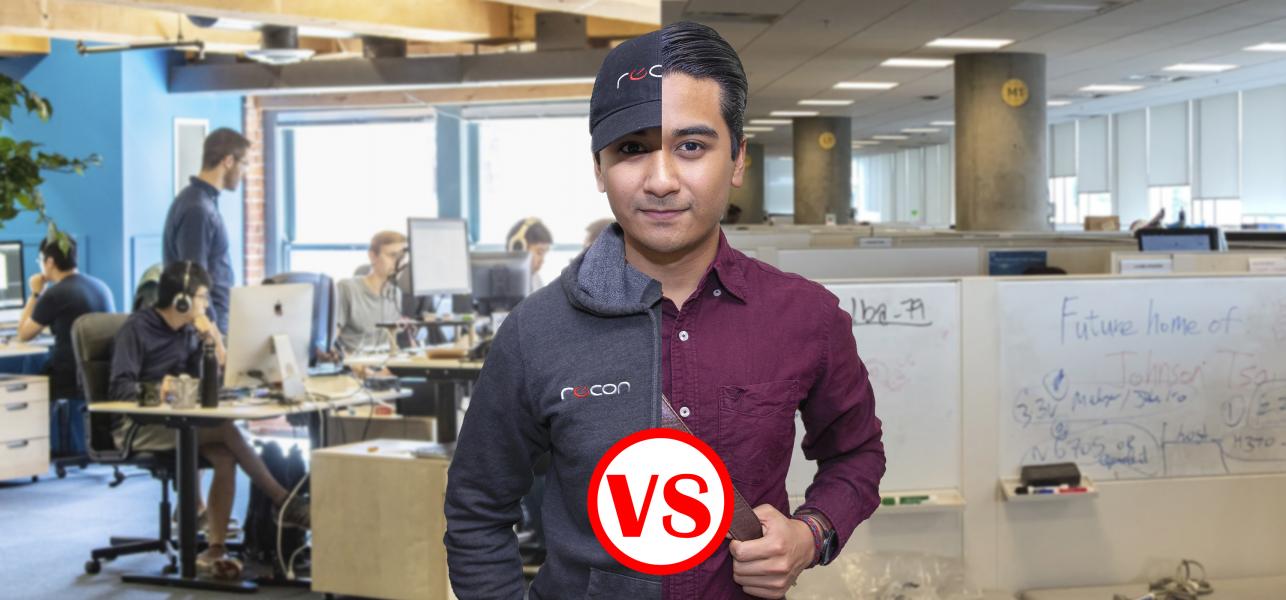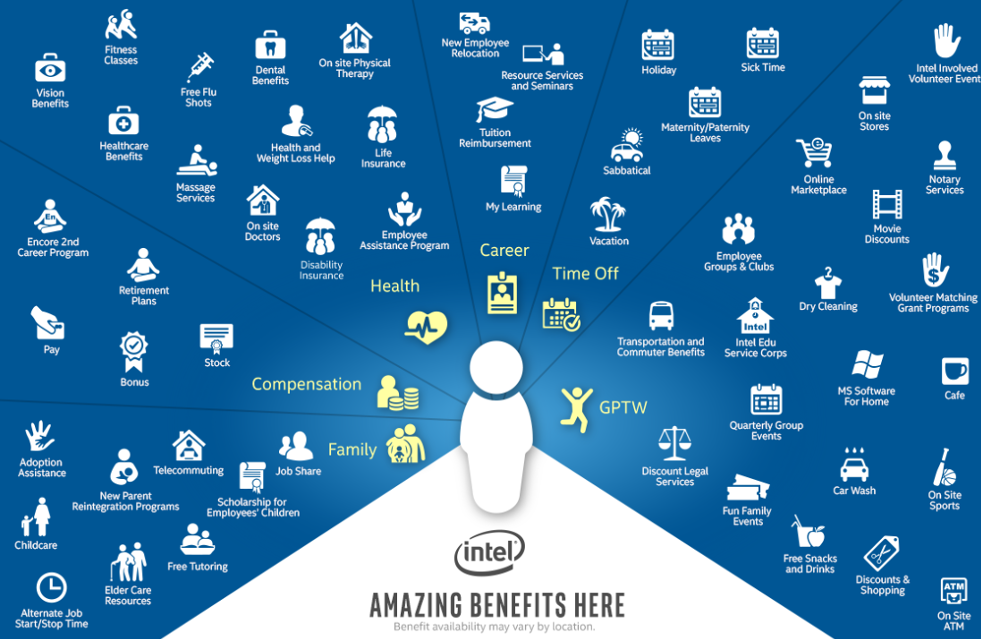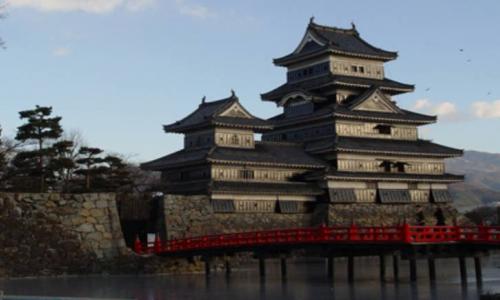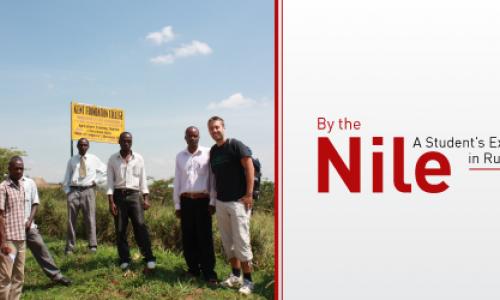
I’ve done five co-op terms at Intel; three beginning at Intel’s New Devices Group (NDG), which was the name assigned to Intel’s acquired startup company called Recon Instruments. NDG was shut down, and I was transferred to Intel’s Non-volatile Memory Solutions Group (NSG). Let’s begin with a little history and some background on Recon Instruments.
Recon, founded in 2008, was a start-up that created one of the most powerful smart eyewear for athletes. From the Mod Live HUD for snow sports, to the Recon Jet glasses for cycling and running, Recon gave innovative ideas for the active, sports-loving consumer, and even made the tech-loving consumer more active. Recon was acquired by Intel in 2015, and the team migrated from its original office to an official Intel site in Summer 2017. I wasn’t there for the move since I was in school that summer, but I returned to the team in January 2018 in my third co-op term. During this term, we were in the middle of developing Intel’s first smart glasses, Vaunt. Unfortunately in April 2018, the project was cancelled, and the entire team, including its Recon employees, were laid off.
Before we get into a comparison of start-ups and big corporations, and deciding which path is right for you, please note that my co-op started at Recon Instruments in 2016, which is one year after Intel acquired the startup company. So technically, I didn’t have the “actual” start-up experience, but I can assure you that my experience at Recon was completely different from that of working in a giant like Intel.
Within my collective co-op experience, I noticed a significant difference between working at Recon and Intel in terms of environment and culture. Start-ups, obviously, have a smaller office compared to that of large corporations. Furthermore, start-ups usually have open office layouts, vs. cubicles at large corporations. With an open office, you can easily collaborate and chat with other co-workers around you, while a cubicle gives you some sense of personal space and privacy to focus on your work. That being said, it’s usual for startup offices to be a little louder and distracting since you can see and participate in everything going on around you.
Start-ups are usually more laidback and relaxed compared to larger corporations. When I was at Recon, each member of the team personalized their workspace in their own way. Everyone had their own mechanical keyboard that they bought specifically for work (which may add to the loud and distracting issue I mentioned above). We were even allowed to bring pets to work. Working hours were very flexible; we could come in at any time as long as we worked for eight hours (note that for engineering positions, we were expected to exceed those eight hours for certain important tasks). People were very outgoing, friendly, and my manager checked up on me frequently, in person. There was no real “gap” between me and my manager at Recon, which is quite typical for start-up companies; you know your manager well and you’re good friends with them. I had four different managers/supervisors overtime at Recon and was quite close to them. I would go out with them for lunch, along with our other co-workers, and they’d arrange some sort of hangout during the weekends or after working hours to socialize and catch up on everyone’s personal life. Although under Intel at the time, we still had a lot of “Recon pride” and spirit, where we were given a lot of Recon merchandise—from Recon hats and toques to Recon hoodies and umbrellas. To get an official Intel T-shirt, for example, you’d have to get one at a rare Intel Event, or else go to their merchandise website, pay $15.95 USD for the shirt and a ridiculous $20.00 USD shipping fee. Recon, although a relatively small team, had plenty of team spirit and everyone seemed motivated in what they were doing – and the merchandise was easily available!
After the team’s shutdown and my transfer to NSG, things got much stricter. We weren’t allowed loud mechanical keyboards or any other keyboard for that matter aside from the office’s “standard” HP keyboard and mouse. Team spirit seemed non-existent. Contractors were treated differently from regular employees. And oddly, in my experience at NSG, people seemed quite shy for the most part. Unlike Recon, there was a lot of online messaging instead of walking over to each others desks to have a conversation. It wasn’t rare to be messaged by someone who was only one or two cubes away from you. Furthermore, the team was large. I would be communicating with people from my office floor, to people in the States and even overseas.
Meetings were different in Recon compared to NSG. Even though both followed the Agile development flow; at Recon, I noticed we had very few meetings. At the beginning of my co-op at Recon, we would have quick 5-minute daily stand-ups, a brief all-hands meeting every week, and a one-hour weekly team meeting. Although Agile methodology requires the need for daily stand-ups, during my next co-op term at Recon we stopped having stand-ups, and our team only met once per week. However, those meetings were to the point, very useful, and efficient; one meeting per week and the rest of the time was dedicated to working. Meetings at NSG were a completely different story; they would almost flood our schedules. We would have 30-minute meetings daily for team stand-ups, and at the end of our sprint, we would have one-hour meetings for team retrospectives and three different Sprint Planning sessions to prepare for the next sprint. There was Sprint Planning 1 on one day, Sprint planning 1.5 on the next, and Sprint Planning 2 the following day. Furthermore, we had a weekly “backlog grooming” session, which was basically a collaboration to fill out some gaps in our tickets with details. In most cases, we were spammed with meetings and didn’t have the time we wanted to actually do our work. There have been days where I’ve had 5 hours of meetings in an 8-hour workday. Of course, in many cases, these meetings can be very helpful and give us the opportunity to collaborate with others. But in most cases, for me at least, much of the time spent and things are done in those meetings were quite irrelevant to what I was doing. So, in larger corporations, depending on the company, expect a lot of meetings!
You’ve probably figured it out: typically, large corporations will have a higher pay compared to smaller, startup companies. For many, a higher income takes priority over enjoying the work itself. So, if you’re more concerned about earning a little more of that extra green stuff to support your family, yourself, or if you love to spend money on things like expensive cheese, then applying for a large corporation would be your best fit. Furthermore, large companies tend to have very good benefits, such as dental, vision, massage services, healthcare, bonuses, stock programs etc…you name it.

At a start-up though, you usually don’t get all these goodies. Instead, you typically get free food and lots of it! Back at Recon’s office, we would have fruits delivered to our office every Monday; and every Friday we would have our own “Happy Hour,” where at 4:30 pm, everyone in the office would head down to our lounge room. Various types of food would be delivered, depending on the day’s theme. During our Happy Hours, workers would unwind, eat, play ping pong and video games, watch sports, drink, and most importantly, interact and get to know one another. We even had a beer dispenser at our lounge for the team (the only source of alcohol you could find at an official Intel site would be to attend a rare Intel event or party). Recon’s Happy Hour really emphasized team spirit and was a great way to have fun and get to know your co-workers.
Final Thoughts
So what would you choose: startup or a large corporation? Or perhaps you would want to experience both in your career? In my experience, start-ups are more fun. There is a lot of team spirit, tons of free food, and overall, a very collaborative and social environment. For larger corporations, you typically get higher pay and better benefits. Things are more structured, organized, and there’s a sense of stability. Plus, it feels good to tell people you work at a large company, and chances are most people would have heard of it, unlike a smaller start-up. Whatever your choice is, aside from the pay, it is important to enjoy your job and what you do. At work, you don’t want to be counting the days. Instead, make the days count.
Beyond the Blog
- Want to learn more about co-op opportunities like Darryl’s? Check out SFU Computing Science Co-op homepage.















